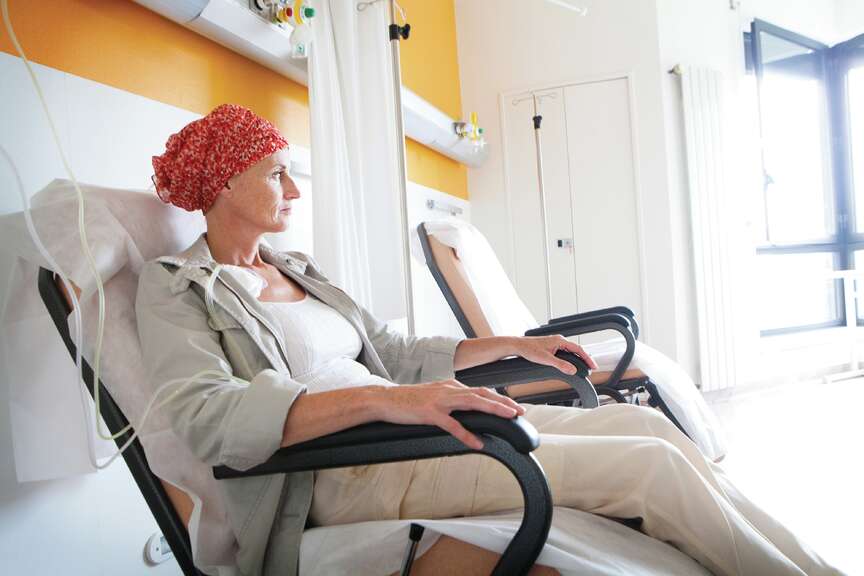Managing treatment costs
Facing a breast cancer diagnosis is overwhelming both emotionally and financially. Managing the costs of treatment is a crucial aspect of care.
Breastcancer.org warns the costs of breast cancer go beyond paying for medical procedures and medication. Other expenses include the transportation to and from a treatment center, child care while you are having a treatment and specialized diets. Some people may also be facing loss of income from taking time off work.
Managing health insurance
Familiarize yourself with your health insurance policy. Know what is covered, including hospital stays, treatments, medications and diagnostic tests. Pay attention to co-pays, deductibles and out-of-pocket maximums. Using health care providers within your insurance network can significantly reduce costs. Verify that your oncologist, hospital and any specialists are in-network.
Some treatments require pre-authorization from your insurance company. Ensure your health care provider obtains this approval before proceeding with treatments to avoid unexpected bills.
"We give patients the diagnosis codes, the procedure codes, and encourage them strongly to call their insurance company to see if they need any pre-certifications and pre-authorizations and for information about co-pays and deductibles," said Annette Hargadon, CRNP, breast surgery specialist at the Lankenau Medical Center in Pennsylvania.
Maintain detailed records of all medical bills, insurance claims and correspondence. This can help track expenses and resolve disputes with insurance companies. Many hospitals and cancer treatment centers offer financial assistance programs.
These programs can help cover costs not paid by insurance, including co-pays and deductibles.
Managing costs without insurance
If you lack insurance, investigate available coverage options. Medicaid provides health coverage for low-income individuals, and the criteria vary by state. The Affordable Care Act (ACA) marketplace offers plans that may be subsidized based on your income.
Numerous organizations provide financial aid to breast cancer patients. The American Cancer Society, Susan G. Komen Foundation, and CancerCare offer grants and assistance programs to help cover treatment costs.
Many hospitals have financial aid programs for uninsured patients. These programs can reduce or even eliminate medical bills based on your financial situation. Participating in clinical trials can provide access to cutting-edge treatments at no cost. Clinical trials often cover the cost of medications and related health care expenses.
Tips for lowering medication costs
Whenever possible, opt for generic medications instead of brand-name drugs. Generics are significantly cheaper and equally effective.
Many pharmaceutical companies offer prescription assistance programs for patients who cannot afford their medications. Programs like the Partnership for Prescription Assistance can help you find these resources.
Medication prices can vary widely between pharmacies. Use online tools like GoodRx to compare prices and find discounts. Doctors often have samples of medications. Ask your oncologist if they can provide samples to help reduce your costs.
If you take a medication regularly, ask your doctor to prescribe a 90-day supply. Many pharmacies offer discounts for buying in bulk.
Breast cancer treatments: Effects on the immune system
Breast cancer treatments are designed to target and destroy cancer cells, but they can also have significant effects on the body's immune system.
Understanding these effects is crucial for managing side effects and maintaining overall health during and after treatment. Here's a closer look at how common breast cancer treatments interact with the immune system.
Chemotherapy
Chemotherapy is one of the most widely used treatments for breast cancer. It targets rapidly dividing cells, a hallmark of cancer cells. However, chemotherapy does not discriminate between cancer cells and other rapidly dividing cells, such as those in the bone marrow, which produce white blood cells crucial for immune function.
Chemotherapy can significantly reduce the number of white blood cells, particularly neutrophils, leading to a condition called neutropenia. This makes patients more susceptible to infections. The body's reduced ability to fight infections can result in prolonged fatigue and general weakness.
Patients should practice good hygiene, avoid large crowds and steer clear of sick individuals. In some cases, doctors may prescribe growth factors to stimulate white blood cell production or antibiotics to prevent infections.
Radiation therapy
Radiation therapy uses high-energy rays to target and kill cancer cells. While it is localized to the breast area, it can still affect the immune system, particularly if lymph nodes are included in the treatment field.
Radiation can damage healthy cells in the treated area, leading to localized immunosuppression. Damage to the lymphatic system can lead to lymphedema, a condition characterized by swelling due to lymph fluid buildup, which can compromise local immune function.
Patients should take extra care of the skin in the treated area to prevent infections. Regular exercise, compression garments and manual lymphatic drainage can help manage lymphedema.
Hormone therapy
Hormone therapies, such as tamoxifen or aromatase inhibitors, are used to treat hormone receptor-positive breast cancer by blocking the effects of estrogen.
Hormone therapies generally have a less direct effect on the immune system compared to chemotherapy or radiation. However, they can still affect overall health and well-being, indirectly influencing immune function.
Some studies suggest that hormone therapy can slightly increase the risk of certain infections.
Regular check-ups can help monitor any side effects and manage them promptly. Maintaining a healthy diet, regular exercise and adequate sleep can support overall immune function.
Targeted therapy and immunotherapy
Targeted therapies, such as HER2 inhibitors, and immunotherapies, like checkpoint inhibitors, represent advanced treatment options that work by specifically targeting cancer cells or boosting the immune system to fight cancer.
Immunotherapies can enhance the immune system's ability to recognize and destroy cancer cells. These therapies can sometimes lead to immune-related adverse effects, such as inflammation of healthy tissues.
Patients receiving these therapies require close monitoring for immune-related side effects. Early intervention for side effects, such as using corticosteroids for inflammation, can mitigate complications.

